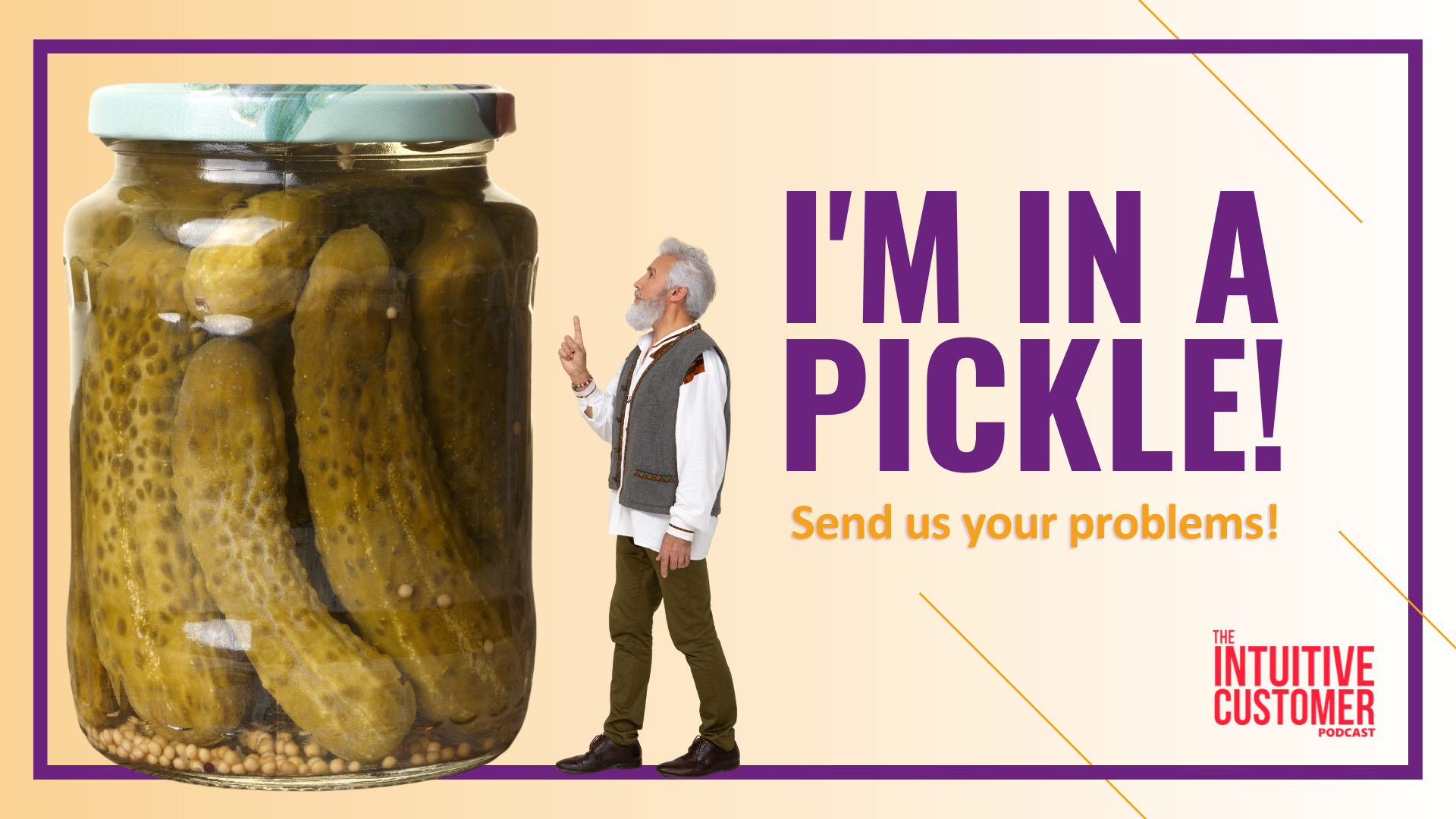A lot of the deepest beliefs that people have come from stories. The story is what makes the idea believable and compelling. People relate to concepts more when they can associate them with an example of an anecdote. Therefore, telling stories is an integral part of your customer strategy.
The Christmas holiday is built upon the story of Jesus’ birth. So, it’s not surprising that stories surround the whole holiday. From grumpy creatures who don’t like the noise their neighbors make to a single dad who accidentally kills Santa and then has to take his place, stories enrich the Christmas experience for many people. For example, I always watch A Christmas Carol, and I also force my family to watch it. After all, isn’t forcing your family to do things they don’t want to do the spirit of the season?
Storytelling is a form of persuasion and communication, which are an essential part of business. We discussed the theory behind why storytelling is so important and some practical applications of it in a recent podcast.
Everyone Uses Stories
We are hard-wired for stories. We seek out stories because they entertain us and remember stories better than if we heard the same information in a nonstory format. In addition, we share stories more than we do information we learned another way.
 Politicians love stories, too. For example, John McCain, a 2008 U.S. presidential candidate, brought up “Joe the Plumber” as an example of who would be hurt by opponent Barack Obama’s tax policies. McCain knew that talking about tax bills that increase by two percent is hard for people to grasp in the abstract. However, a story about how it affects Joe the Plumber, an allegory for the average American citizen, makes the idea relatable and persuasive.
Politicians love stories, too. For example, John McCain, a 2008 U.S. presidential candidate, brought up “Joe the Plumber” as an example of who would be hurt by opponent Barack Obama’s tax policies. McCain knew that talking about tax bills that increase by two percent is hard for people to grasp in the abstract. However, a story about how it affects Joe the Plumber, an allegory for the average American citizen, makes the idea relatable and persuasive.
While I am not a politician, I also use stories to get my point across. For example, I use one to explain the difference between what customers say they want and what they really want. To tell it quickly, Disney Theme Park customers said they wanted salads at the park, but Disney knows that people don’t eat salads at theme parks; they want hamburgers. That example demonstrates that even though customers say they want something, the truth of what they want is under the surface of that statement. It’s up to the organization to understand the difference and find the real answer.
Stories also help me understand when I have hit understanding during a speech. When I see heads nodding and hear chuckles of recognition, I know people relate to what I said.
We also use many stories on the podcast. Sometimes about research studies; other times from my days in corporate life. We do that to embed a persuasive message within a story to be more convincing, understandable, and memorable.
I have visited various churches and temples and, no matter which religion, there’s a story behind how it began. People believe in those stories; they form their most tightly held beliefs.
Along these lines, stories drive political beliefs, too. When you consider the divides between parties today, it isn’t hard to see that people believe their version of the story and are loyal to it. The story of the political party they claim upholds their values and top-level views they have.
 To a certain extent, our realities are the stories that we tell ourselves, and stories are inherently going to be a simplification. When reality conflicts with the simplified story that we’ve told ourselves, we need to find a way to reconcile them. Our emotional nature often leads to us favoring the story over the facts. Moreover, Social Proof comes into play. If we see and hear other people telling the same story, it gives the story more validity in religion or politics. Sometimes, if you think and associate yourself with these other people, you also adopt the story as your own.
To a certain extent, our realities are the stories that we tell ourselves, and stories are inherently going to be a simplification. When reality conflicts with the simplified story that we’ve told ourselves, we need to find a way to reconcile them. Our emotional nature often leads to us favoring the story over the facts. Moreover, Social Proof comes into play. If we see and hear other people telling the same story, it gives the story more validity in religion or politics. Sometimes, if you think and associate yourself with these other people, you also adopt the story as your own.
The Power of Story for Brands
Moving away from religion and politics, which, I am sure we can all agree, is a good move, brands have stories, too. Customers also associate themselves with the brands they buy. For example, if someone values being socially conscious, they will want to associate with a socially conscious brand. If a brand is luxurious and a person wants to be associated with that lifestyle, they will associate themselves with it.
In my life, the brand I associate myself with is Apple. It’s not a religion, per se, but it is a brand I admire. In a way, I feel that I’m part of that Apple story. I associate myself with the privacy they value the coolness of their products and Apple’s approach to technology.
I even associate myself with Steve Jobs and the story of Steve Jobs. I am not alone in this. Some research exists that many tech companies have origin myths about starting the company in the garage, like Jobs.
Good brands have a story, and a lot of that includes a foundation myth, just like any superhero would. The story resonates with us because we all love an underdog. We love the story of starting from nowhere without access or resources and then coming out on top. Brand stories often suffer oversimplification, but the reason they tell them is that they’re important to people.
 Consider the Father Christmas, aka Santa Claus, story. How many of us have told our children one of the many versions of this story? Then, how many of those children have grown up to tell that story to their children, too? We tell them because the story was essential to our childhood, and we want them to continue to be important to the childhoods of those we love.
Consider the Father Christmas, aka Santa Claus, story. How many of us have told our children one of the many versions of this story? Then, how many of those children have grown up to tell that story to their children, too? We tell them because the story was essential to our childhood, and we want them to continue to be important to the childhoods of those we love.
So, What Should You Do With Storytelling in Your Customer Strategy?
The storytelling philosophy goes back to Aristotle, who helped define what storytelling is through plays and drama. A story has a beginning, middle, and end. Therefore, when you use storytelling, it would be best to set up the context before dropping people into the drama of it, and then you need to have a resolution.
Consider a job interview. A job interview is your opportunity to market yourself, and what better way to do that than through stories? It would be best if you did everything you could to present your experience in the form of stories. For example, if you want to convince somebody that you have leadership skills, tell them a story about a situation where you led people. However, it is essential to remember the format for stories. It is best to give people a setting, pull them into the conflict, and then provide a resolution. Even better is when the resolution has some critical results associated with it, whether that’s sales figures, increases in a key metric, or return on investment numbers.
In Seven Habits of Highly Effective People, Stephen Covey says to start with the end in mind. In other words, before you do something, be clear about what you want to achieve. That concept works for stories, too. Consider what you want your story to persuade people to do or what you want to communicate. This resolution is the starting point for creating a story.
Finally, relatable and straightforward are critical elements when it comes to storytelling. This part can be challenging for people who are experts in their field. For example, we used to have a very clever employee who had difficulty articulating his ideas to the team. To help him, I would encourage him to imagine he was describing his concept for his mates down at the pub. Then, we understood what he meant. So, think about how you would explain your organization’s story to a customer in layman’s terms. This skill is essential for compelling storytelling.
Stories are essential for communication. They help people understand what you are trying to say and convince them to do things. Whether it’s about establishing a religion, an everyday person facing a tax increase, the origin story of a computer operating system, or a magic elf delivering presents to all the good little children of the world, stories help us relate to ideas and persuade us to behave in different ways. Don’t believe me? Ask yourself who wants to be on the naughty list this time of year?
Stories work for a customer strategy, too. When you tell your customers a story, you influence their behavior. So, why not tell them one that helps deliver the bottom-line performance you need? After all, I am pretty sure that “customer-driven growth” isn’t something the elves can handle in the North Pole.
From all of us at Beyond Philosophy, we wish you a Merry Christmas and a Happy New Year!
If you have a business problem that you would like some help with, contact me on LinkedIn or write to us at www.beyondphilosophy.com/pickle. We would be glad to hear from you and help you with your challenges.
 There you have it. No promotions, no gimmicks, just good information.
There you have it. No promotions, no gimmicks, just good information.
Think reading is for chumps? Try my podcast, The Intuitive Customer instead. We explore the many reasons why customers do what they do—and what you should do about it. Subscribe today right here.


